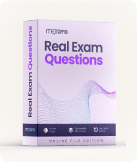BBPSD CSFX - Customer Service Exam
Page: 1 / 33
Total 165 questions
Question #1 (Topic: )
When establishing standards of customer service it is helpful if they are specific,
measurable, achievable, realistic and:
measurable, achievable, realistic and:
A. Time.
B. Time bound.
C. Trustworthy.
D. Tested.
Answer: B
Question #2 (Topic: )
A weekly planning schedule is an effective:
A. Time management planning tool.
B. Waste of time.
C. Management system.
D. Way of looking back at the week.
Answer: A
Question #3 (Topic: )
When customers are sub divided into smaller groups to distinguish purchaser behaviour
this is called:
this is called:
A. Buying power.
B. Selling power.
C. The local market.
D. Market segmentation.
Answer: D
Question #4 (Topic: )
An undifferentiated targeting strategy is used when a product or service has:
A. Not been differentiated in the market place.
B. Been selected been specially developed for a particular market segment.
C. More than one customer segment.
D. No price difference attached to it.
Answer: A
Question #5 (Topic: )
An employee who has the skills to deal effectively in customer facing roles within the
business is called a:
business is called a:
A. Trained salesperson.
B. Customer service professional.
C. Effective customer professional.
D. Customer focused professional.
Answer: B
